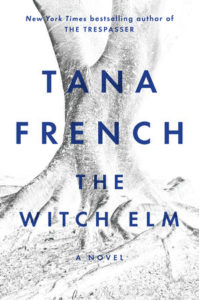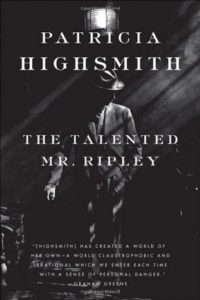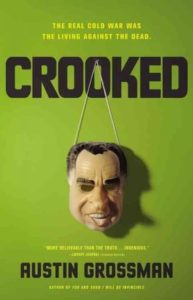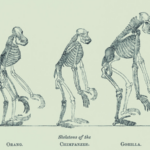I will be honest with you, reader: I love reading about liars. A lie is a cocked gun, bound to go off before the end of the story. A lie is also a guarantee: there will be consequences, and the fundamental self of the narrator will shift as a result of both.
There is something deeply human about a character who lies. Whether they’re deceiving themselves of others, and whether their intentions are good or evil, the falsehoods these characters try to pass off as reality come from a familiar place. Every reader has been in a position to bend the truth for one reason or another, and every reader has had a lie go south on them—there is little that is so universally relatable as a character getting caught in a lie and having to find their way through whatever comes next. It’s cathartic to read about someone having to face the repercussions of their dishonesty; there is comfort in watching someone survive that reckoning. There’s also a sense of sympathy in these narratives: the reader usually understands exactly why the character in question thought they had to lie in the first place, and so the action is forgivable. In this way, stories about liars give readers permission to forgive themselves for the mortifying experience of trying—and ultimately failing—to pull the wool over someone else’s eyes.
Crucially, in these narratives, lies don’t survive. They don’t last for generations, and they don’t cause indelible harm to generations of marginalized people. They aren’t perpetuated by a society that values comfort over truth. The consequences of these lies are clear within the structure of the story, and whether or not those consequences find resolution, they are contained. In a world where lies so often eclipse the truth, there is great comfort to be found in stories in which liars are identifiable and falsehoods can be unravelled.
Here are five books about liars and the tales they tell:

The Witch Elm by Tana French
You knew that Tana French would be somewhere on this list, so let’s just put her right at the top. The With Elm is the story of Toby, a man who has skated through life on greased wheels. When a head injury—the result of a burglary gone wrong—puts Toby in a state of marginalization for the first time in his life, he’s woefully underprepared for the challenges life presents him. Especially when it turns out that one of those challenges is the discovery of a dead body at his family’s ancestral home. Toby struggles to get a grasp on reality, and no one around him is quite willing to tell him the truth about himself, his life, or the skeleton in the Witch Elm. This book is a brilliant exploration of identity, privilege, class, and the true horror of gaslighting.

The Disreputable History of Frankie Landau-Banks by E. Lockhart
I’ve rarely had as much fun reading a book as I did with The Disreputable History of Frankie Landau-Banks. This book is about the strange practices of upper-crust teens, and the bone-deep frustration of being an outsider. The titular Frankie is excluded from the all-male secret prankster society at her new boarding school, and she won’t stand for it. Frankie impersonates the boy who is in charge of the secret society, successfully coordinating better pranks than any of the boys have ever even considered. But her deception has a cost, and Frankie must grapple with that cost—even in her moments of triumph.

The Talented Mr. Ripley by Patricia Highsmith
No list of liars is complete without Mr. Ripley. This book is gorgeously written, and—in my opinion, but I don’t think I’m alone here—deserves a prime spot in the canon of queer literature. Tom Ripley becomes obsessed with his friend Dickie Greenleaf. Like, really obsessed. Like… kill-him-and-assume-his-identity obsessed. The book is beautiful and calamitous, following Tom Ripley’s transformation into a man whose first answer to any problem is “maybe I should do some more murder?” The reader can see that Tom Ripley is a fundamentally bad person, but Highsmith’s rendering makes his motives understandable. The desire to slip into another life is a relatable one, and while Tom Ripley’s methods are perhaps not admirable, one cannot argue that he gets results.

We Have Always Lived In the Castle by Shirley Jackson
One could argue that there are no lies in We Have Always Lived in the Castle. One could also argue that the book is written entirely in untruths. This book is the story of Mary Katherine Blackwood, her sister Constance, and how their house becomes haunted by the two of them. They live with their Uncle Julian, and the rest of their family is dead, poisoned at dinner one night several years before the events of the novel. The great lie of this book is not the identity of the poisoner—that’s not so difficult to suss out. The way the characters in the book treat that information, however, is another thing entirely. In this book, everyone is lying to themselves, and no one is lying to each other, and the result is a dark and tangled story of love and loyalty.

Crooked by Austin Grossman
CROOKED is about one of the most famous liars in history—Richard Nixon. In this account of Nixon’s life and presidency, Grossman reveals how such a strange and unlikeable man came into power: interference by Eldritch horrors. CROOKED follows Richard Nixon through his discovery of otherworldly powers, the unholy bargain he strikes with them, and their manipulation of his entire life and career all the way up to his calamitous presidency. This book honestly portrays Nixon’s thirst for power, and reframes his notorious lies as driven by the deep terror of a man controlled by forces well beyond his comprehension.

















